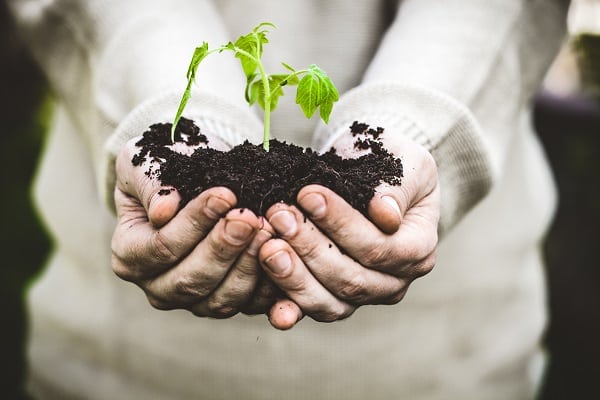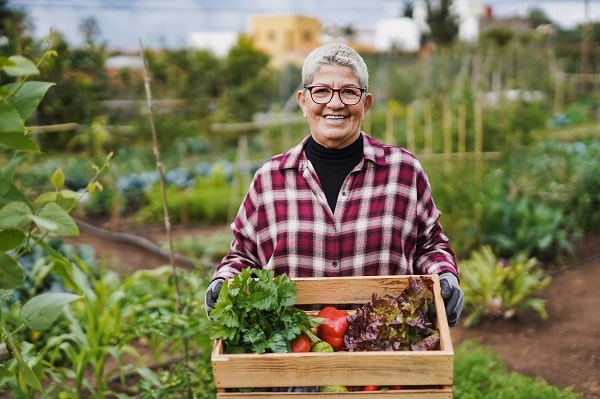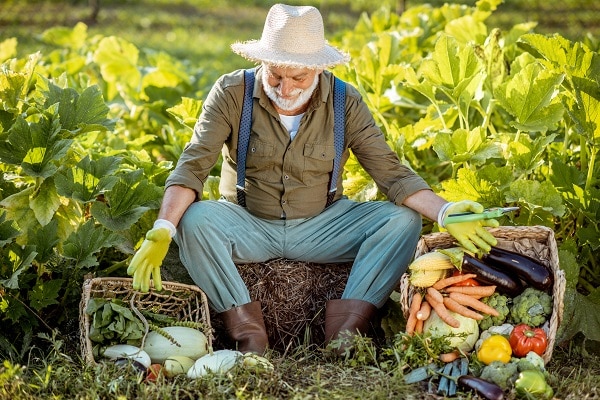Organic gardening, often lauded for its environmental benefits and healthful produce, has become a popular choice for many gardeners. This approach, which eschews synthetic fertilizers and pesticides, is generally perceived as a safer, more natural way to grow food. However, beneath the surface of this green practice lies the hidden risks of organic gardening that are often overlooked. These risks, ranging from misconceptions about organic labels to the complexities of maintaining a balanced ecosystem, can have significant impacts on both the environment and the gardener. Understanding these risks is crucial for anyone considering or currently practicing organic gardening.
Contents
Misconceptions About Organic Products

The term ‘organic’ often conveys a sense of safety and natural purity, leading many to believe that organic gardening is completely harmless. However, this is a misconception. Organic pesticides and fertilizers, though derived from natural sources, can still pose significant risks if not used correctly. For example, substances like pyrethrin, found in some organic pesticides, can be toxic to aquatic life and beneficial insects. Additionally, overuse of organic fertilizers can lead to nutrient imbalances in the soil and contribute to water pollution.
These risks extend beyond environmental concerns to human health. Misuse of organic pesticides can result in exposure to substances as harmful as synthetic ones. For instance, rotenone, a common organic insecticide, has been linked to increased risks of neurological diseases. Furthermore, organic fertilizers such as manure can harbor pathogens like E. coli, posing a direct threat to health if not properly composted and handled. These examples highlight the need for careful selection and application of organic products.
Environmental Impact

Organic gardening is often praised for its positive impact on the environment, but it’s not without ecological challenges. One major concern is the overuse of water. Organic gardens, particularly in arid regions, can require substantial amounts of water, leading to unsustainable consumption and strain on local water resources. Additionally, certain organic practices, such as tilling, can contribute to soil erosion and loss of topsoil, counteracting some of the environmental benefits of organic gardening.
Moreover, the impact on local wildlife and biodiversity is a concern. Some organic gardening practices can inadvertently harm local ecosystems. For instance, the use of certain organic pesticides while targeting pests, can also affect non-target species, disrupting local biodiversity. Understanding and mitigating these environmental impacts is essential for truly sustainable organic gardening practices.
Health Risks In Organic Gardening

Organic gardening, often perceived as a healthier alternative, can still pose health risks. Natural pesticides, while free from synthetic chemicals, can contain substances that are harmful if not handled properly. For example, certain plant-based pesticides may be toxic when inhaled or absorbed through the skin. This underscores the importance of using protective gear and following safety guidelines, even when working with organic products.
Additionally, the risk of allergens in organic gardening is often overlooked. Natural fertilizers and composts can harbor mold and other allergens, posing risks to individuals with sensitivities. Gardeners should be aware of these potential health hazards and take appropriate precautions, such as wearing masks and gloves, to minimize exposure and protect their health.
Economic Considerations

The cost of organic gardening is a significant factor that is often underestimated. Organic seeds, fertilizers, and pest control methods generally come with a higher price tag compared to conventional alternatives. This can make organic gardening a more expensive endeavor, potentially limiting its accessibility to a wider audience. Gardeners should consider the long-term financial implications of choosing organic methods and plan their budgets accordingly.
Moreover, the economic sustainability of organic gardening is a topic of debate. While it can lead to savings in the long run through improved soil health and reduced reliance on purchased inputs, the initial investment and ongoing costs can be substantial. This aspect of organic gardening requires careful consideration, especially for those looking to adopt organic practices on a larger scale or as a means of livelihood.
Labor And Time Investment

Organic gardening demands a significant investment of time and labor, often more so than conventional gardening. The manual removal of weeds and pests, a common practice in organic gardens, is labor-intensive and time-consuming. This increased workload can be challenging for gardeners, especially those with limited time or physical constraints. Understanding and preparing for the labor requirements is essential for a successful organic garden.
Additionally, organic soil management, involving composting and natural fertilizers, requires ongoing attention and effort. These practices, while beneficial for soil health, add to the daily workload of the gardener. Effective time management and possibly the use of labor-saving tools and techniques become crucial in maintaining an organic garden without becoming overwhelmed.
Knowledge And Skill Level Required

Organic gardening involves a steep learning curve, requiring a deeper understanding of ecological processes and organic materials. Gardeners must be knowledgeable about natural pest control methods, soil health, and the specific needs of plants in an organic setting. This level of expertise can be daunting for beginners and requires a commitment to continuous learning.
Access to reliable information and resources is key to developing the necessary skills for successful organic gardening. This might include attending workshops, consulting with experienced organic gardeners, or reading extensively on the subject. The investment in learning and skill development is a critical component of organic gardening that should not be underestimated.
Potential For Lower Yields

Organic gardening can sometimes result in lower yields compared to conventional methods. The absence of synthetic fertilizers and pesticides means that plants may be more susceptible to pests and diseases, potentially reducing crop productivity. This is a significant consideration for those relying on their garden for a substantial portion of their food supply.
However, there are ways to optimize yield in organic gardening. Techniques such as crop rotation, companion planting, and building healthy soil can enhance plant growth and resilience. Gardeners should be prepared for the possibility of lower yields initially while also exploring strategies to maximize the productivity of their organic garden over time.
Unearth The Truth Behind Organic Gardening
Organic gardening, while offering numerous benefits, comes with its own set of challenges and considerations. From health risks and economic factors to the demands of labor and knowledge, it’s clear that organic gardening requires careful planning and commitment. Understanding these hidden risks is crucial for anyone embarking on or continuing their journey in organic gardening. By acknowledging and addressing these challenges, gardeners can more effectively navigate the complexities of organic gardening, ensuring a safer and more sustainable practice.